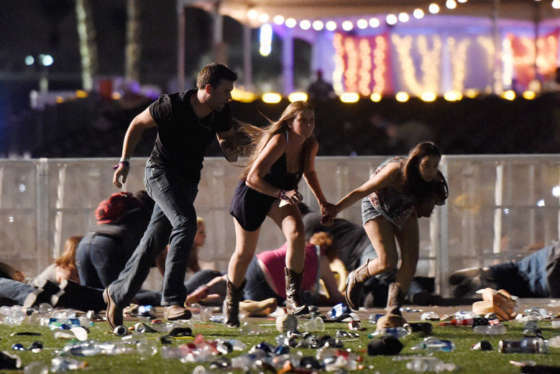WASHINGTON — In the hours and days after a traumatic event such as the mass shooting in Las Vegas, many people are often confused and unsure of how to feel. A clinical psychologist has advice for both children and adults on how to deal with these types of events.
Children often take emotional cues from the adults in their life, so how parents broach the conversation with them following a tragedy, and where, are important. To start, pick a quiet space when both the child and the adult are calm, said clinical psychologist Dr. Peter L. Sheras.
“Just take kind of a special moment for you to really start the conversation with them … Listen to their thoughts and what they have to say, depending on how old they are, and for you to say what your feelings are, and what your fears are and the concerns you have,” said Sheras, who is also a professor at University of Virginia.
Children can interpret your concern over an event to mean it’s close to them, Sheras said.
“Over and over and over, you want to reassure them that they are safe and what’s happened isn’t happening right around them right now,” he said.
Children will follow adults’ lead when it comes to self-care during a stressful time, too, Sheras said.
The American Psychological Association has a list of tips and suggestions for parents talking to kids about tragedy on its website.
Adults need to take a break, be kind to themselves
After a tragedy, it’s natural to want to know the latest information, but Sheras suggests taking time away from the news cycle.
“You do want to take some breaks. Do something that’s different for you, or something you like to do: cook or go for a walk or take a bath or hit some balls. Something that’s a little bit different for you without feeling guilty because you really do need to take care of yourself,” Sheras said.
The mass shooting in Las Vegas comes after weeks of devastating stories from storm-ravaged areas, which can be a lot of tragedy to process. Sheras said emotions related to your response to those events can build up and hit in waves. Try taking a series of deep breaths, talking out feelings with someone you trust and being social, he said.
“Probably if you’re not incredibly anxious, you should desensitize yourself and get out a little bit. Probably not by yourself, but with friends and other people you know. Do things to physically relax yourself,” he said.
If certain images or coverage is particularly upsetting to you, take a break, but if your emotions begin to manifest physically, Sheras said keep on top of symptoms to determine whether to seek outside care.
“There’s plenty of time to be anxious and concerned. You want to look for signs of stress in yourself, like difficulty concentrating, difficulty sleeping, bad dreams and watch for those signs in your kids too. They might be grouchy or argumentative or quiet. If it’s different for them you probably want ask them and to follow up with them,” Sheras said.







